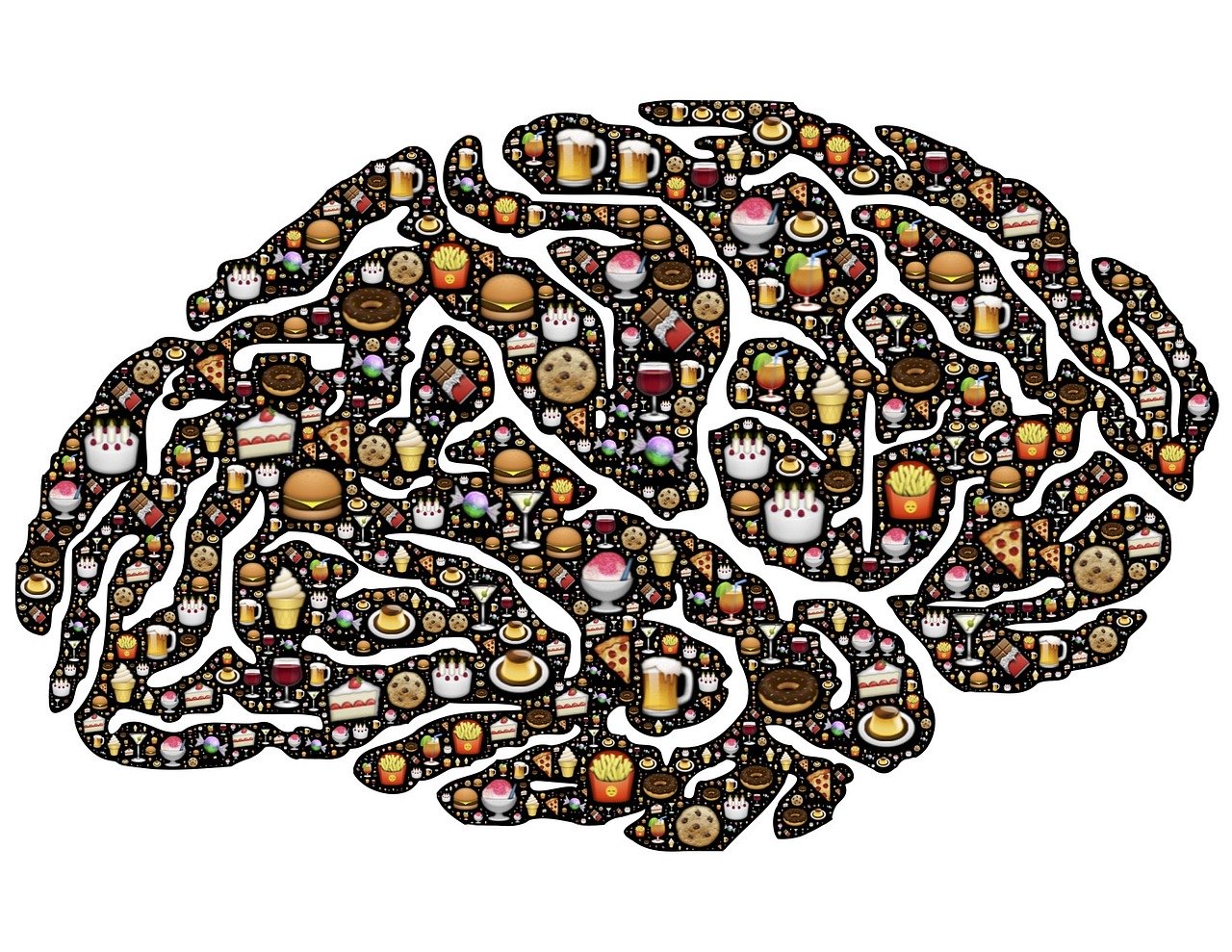
Probably the best-known example of how the brain and mental health are linked to nutrition and our gut, and the one that we can all identify ourselves with, is stress. We all know it: studying 24/7 for an important exam, pressure in the job or even a house full of work. We have no time to think and – no – we definitely don’t have time to cook. But at the same time, we are constantly hungry, craving for a snack. The fastest solution? The next best, nicest looking, edible piece of food we can find. But why do we change our dietary habits during stress and what happens in our body? What are the consequences and what can we do to avoid this impulsive eating behavior? A study from Yau and Potenza [1] states that about 20% of the population do not change their eating behavior during stress (good for them), while about 40% decrease and another 40% increase their caloric intake. But besides simply increasing the amount of food we consume, we also tend to choose more pleasurable and palatable food when we’re stressed. This usually leads to the consumption of unhealthy and calorie-dense foods, which unfortunately results in gaining weight (at least for most of us). Stress can have many different causes, ranging from physical stressors like severe illnesses to emotional stressors such as the loss of a loved one. So far, it is known that acute and severe stressors tend to suppress appetite, which results from our evolutionary conserved ‘fight-or-flight’ reaction [2]. On the other hand, lighter – but therefore often chronic – stressors (occurring on a daily basis) seem to increase our appetite, especially towards energy-dense foods. These two roughly categorized types of stress activate two different systems in our body, causing different stress responses:
- Acute stressors activate the sympathetic adrenal medullary system
- Chronic stressors activate the hypothalamic-pituitary-adrenal [HPA] axis [3]
The sympathetic adrenal medullary system induces the release of adrenaline and noradrenaline. These are the ones increasing our heart rate right before we have to give a talk in front of a huge audience, while they, at the same time, reduce our drive to eat or even make us want to vomit… On the opposite side, the HPA-axis, activated by daily stressors, leads to the release of cortisol. And, cortisol can have some unwanted effects. This hormone is known to stimulate our appetite by affecting our reward system, in a very similar way as alcohol and drugs affect this system. In the case of chronic stress, chocolate or chips can have the same effects as drugs: they make us feel better for a short amount of time. This “positive” feeling, that might reduce our stress level for a few moments, reinforces the consumption of sweets later on, thereby resulting in some kind of dependence. But as in all cases of addictions, this repeated stimulation of the reward system can lead to an adaptation, eventually increasing this compulsive behavior. Knowing now that in some strange ways it is our body that makes us crave burgers and pizza in times of stress, what can we do to avoid gaining weight? Well, the first thing is: listen to your body and try to understand what is going on. Ask yourself why you are stressed and if there is anything you can do to reduce it, like taking more breaks during the day. If this is not possible, try to find other ways to compensate: take walks, do more exercise, find something else that makes you feel better at the end of the day, besides that tasty chocolate donut and popcorn. Before snacking, hesitate and ask yourself if you are really hungry or just eating because you feel like it. And if you absolutely can’t resist, try to substitute the chocolate bar with healthier snacks, like dried fruits or nuts. But finally, keeping all that in mind, don’t forget that food is not always your enemy and there is no problem with eating what you desire as long as it is in moderation.
